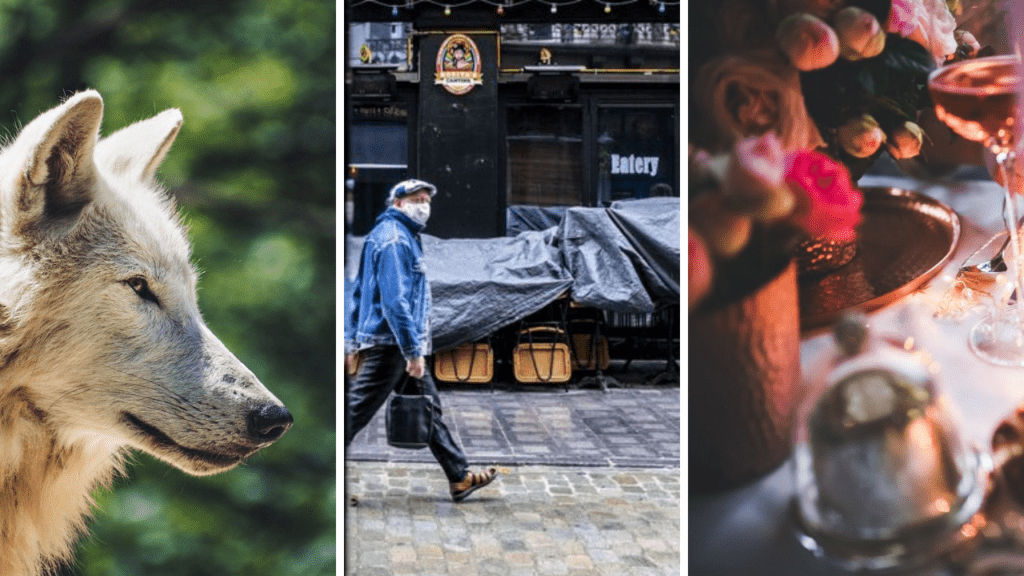The Flemish hospitality industry has spoken out against a recent American study showing that Covid-19 infections mainly occur in bars and restaurants, claiming that “the situation is not comparable.”
The hospitality industry in Flanders does not think it is right that the blame is “once again” put on bars and restaurants “while this is a joint fight,” according to Matthias De Caluwe, CEO of the Flemish hospitality sector federation Horeca Vlaanderen.
Using a model based on demographic data, epidemiological estimates and anonymous mobile phone data, scientists at Stanford University assessed locations more prone to the spread of the virus, with a focus on larger cities.
“Our model predicts that a small fraction of “superspreader” locations account for a large majority of infections and that restricting maximum occupancy at each location is more effective than uniformly reducing occupancy,” explains the study, led by computer scientist Jure Leskovec.
Virologist and interfederal Covid-19 spokesperson Steven Van Gucht told VRT that Stanford’s research “confirms what our common sense has been saying for a long time.”
Biostatistician Geert Molenberghs agrees that there will be some local and regional differences between countries, but also stated that this is “not the first study to point in the direction of the hospitality sector.” More on the story here.
For other news, just keep on reading.
Belgium in Brief is a free daily roundup of the top stories to get you through your lunch break conversations. To receive it straight to your inbox every day, sign up below:
1. ‘Sorry, we cannot cope’: Belgian hospital chief rebukes calls for Christmas relaxations
A Belgian hospital chief strongly rebuked a party chief’s calls for coronavirus rules to be relaxed for Christmas, saying hospitals could not weather a third wave of the pandemic.
“Sorry, we cannot cope with a third wave,” Elisabeth De Waele, the head of the intensive care unit (ICU) of the UZ Brussel university hospital said on Thursday. Read More.
2. ‘Maybe ‘two cuddle contacts before Christmas,’ says Marc Van Ranst
According to virologist Marc Van Ranst, however, there is hope that groups can incrementally grow by the end of the year. “Maybe we can go from 1 to 2 cuddle contacts,” Van Ranst told Radio 1, adding that “it won’t be an ordinary Christmas.”
“We have to resign ourselves to that. Political circles are thinking about it, with a decision on this or the next Consultative Committee, but everyone realises that the situation is still serious.” Here's more.
3. Belgian hospitals record lowest number of new Covid-19 patients since 19 October
On Thursday, Belgian hospitals admitted the lowest number of new coronavirus patients since mid-October, as infection figures drop below 7,000 cases per day, according to Sciensano’s latest figures on Friday.
Between 3 and 9 November, an average of 6,877 new people tested positive per day over the past week, which is a 48% decrease compared to the week before. Read more.
4. Wolf suspected of killing border collie in Limburg
Local authorities in Limburg province have called for action after a border collie was found dead, apparently bitten to death by a wolf.
The incident took place in the municipality of Houthalen-Helchteren in the night of Wednesday to Thursday, when the dog’s remains were discovered some 100m from the pen where he was kept. Somehow, the dog had broken free, the Flemish agency for nature and woodland ANB said, and a fight ensued which the dog did not survive. Read More.
5. Children ‘not spared’ from Covid-19 infection: study
A new study in two Belgian schools has shed new light on the extent of circulation of the new coronavirus (Covid-19) among children.
Health institute Sciensano and researchers at the KU Leuven university studied 362 schoolchildren and found that a higher number than expected had developed antibodies against Covid-19.
Overall, the results of the study showed that a total of 34 children, or more than 9%, had developed antibodies for the coronavirus, suggesting a previous infection. Read More.
6. What to expect from Belgium's Consultative Committee
Belgium's Consultative Committee will meet again today to take stock of the country's epidemiological situation and assess the first results of the latest measures against the coronavirus.
Even though the virus' spread is slowing down, and the figures for infections and hospitalisations are "encouraging," no relaxations of the rules are excepted. Read more.
7. Over 4 in 10 LGBTIQ people in EU feel discriminated against
More than four out of ten LGBTIQ people across the European Union report feeling discriminated against, the European Commission reported when rolling out its EU-wide equality strategy on Thursday.
According to the European Union Agency for Fundamental Rights, 43% of LGBTIQ people declared that they felt discriminated against because of their sexual orientation or gender identity in 2019, an increase from 37% in 2012. Read more.
Jules Johnston
The Brussels Times



